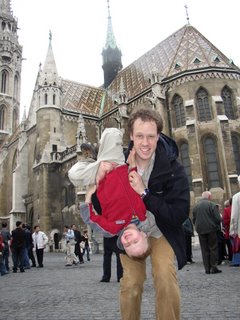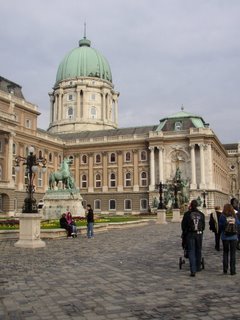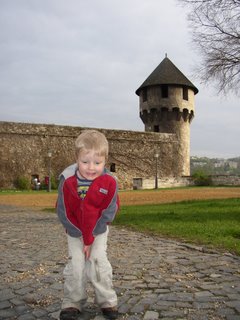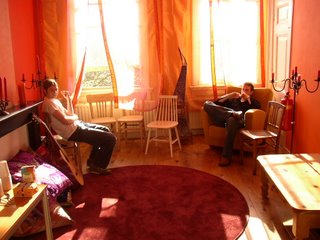
Gary and Mara had a good life -- not perfect, but good. They had jobs that they mostly enjoyed, which provided enough income to support their modest lifestyle. They lived on a quiet street in a medium-sized town, which could have been perceived as somewhat boring, but which suited them just fine. Their primary desire was to raise a family and grow old together. And after six years of marriage, five years of home ownership, and two-and-a-half years of parenthood, they were well on their way. Their daughter, Hannah -- a riot of strawberry-blonde curls and giggling energy -- was a source of profound joy (except when served broccoli for dinner). And to complement and compound their joy, a second baby was due to arrive within days.
Such expectation! Everyone was excited for the new child to be born. Hannah had pinned her hopes on a baby sister. Gary was hoping for a boy. But Mara was quietly confident that it was another little girl. All the same, they had decided to keep things a surprise -- not learning the sex of the baby ahead of time. Still, the family was more than ready for this new little person to grace their home. Names were picked out: Christopher James for a boy, or Caitlain Elizabeth for a girl. The old "guest room" had been repainted a fresh shade of soft yellow, transforming it into the new "baby room." Hopes for the future were high. Thus, when Mara started labor on April 10, just two days before the actual due date, they rushed to the hospital with a natural rush of expectation and joy.
Finally... after nine and a half hours of hard labor, Gary and Mara were prepared for the big surprise when the baby was delivered... A boy? A girl? After the last push, they waited for the doctors to proudly present them with their new son or daughter. But instead, the baby was quickly whisked to a corner of the room where five medical professionals clammored and quickly confirmed what their hearts had worst feared in that fraction of a second when they had seen the lifeless body of their little baby. She -- it was a girl -- had been stillborn...
Stillborn. It's a word which sounds so much prettier than what it really is: Dead.
Dead... The baby had gone before she came, strangled by her own umbilical cord in the birth canal. This much was clear. But in the hours and days following this moment of clarity, chaos and confusion took over. A flood of emotions and practicalities blurred together meaninglessly. Communication and condolences, paperwork and prayers, flowers and funeral arrangements... Everything coated in a thick film of loneliness and emptiness.
Emptiness. Mara's body cried out for the baby that she would never hold. The hormones in her body raged, oblivious to the fact that there was no pregnancy, no baby. Her breasts were at the point of bursting, ready to gush their life-giving milk. Her uterus contracted sharply at twenty minute intervals, each stab of pain a reminder of her emptiness. Empty abdomen, empty arms, empty eyes -- tears could not be stopped. Meanwhile, Gary was in a state of shock. Completely numb -- suckerpunched by the reality of his dead daughter. In talking to concerned relatives and family friends, he found himself using words he never thought he would live to say or experience. His daughter was dead. His daughter's body was being prepared at the funeral home. He would be burying his daughter on Tuesday...
A funeral. Of course they were sad. Of course they were grieved. Yet everything within them rebelled against the funeral planning process. This girl -- flesh of their flesh and bone of their bone -- was a stranger to them. They had never held her tiny hand; they had never kissed her pink lips; they had never looked into her searching eyes. They didn't know this girl. They only knew the hopes of a daughter which had been crucified in the delivery room that morning. In the end, of course, they went through with the funeral because everyone said it would be good to "get some closure." They decided on a closed casket. A simple service at the funeral home with only their closest friends and family. An awkward good-bye to their stranger-daughter.
Awkward silence. The funeral home was filled with a muffled stillness that felt as unnatural as the circumstances of their situation. In the final moments before the funeral, Gary paced the parlor, looking distracted and distant. He was wearing his charcoal suit. Mara was wearing a black dress that her sister had picked out from her from the JC Penney -- a flurried purchase upon the discovery that Mara had nothing in her wardrobe suitable for a funeral. And why should she? She hated black. Yet here she was -- black dress, black heels, a black purse providing Hannah an endless supply of Tic-tacs, to keep her occupied through the experience that no young family should ever have to experience.
"Gary?" The funeral director interrupts the father's panther pacing. "Would you and Mara like a few minutes alone with your daughter?" The husband and wife look at each other, momentarily confused. No, not Hannah. With
her. With Caitlain. They nod reluctantly, passing off Hannah to Mara's mother, and they follow the funeral director through the double doors to the tiny room with the tiny casket craddling their tiny girl. For the last time, the funeral director lifts up the lid of the casket. And there she is. A baby lying perfectly still. A wax figure. Mara starts to sob. The dam holding back Gary's emotion finally breaks, too. They sob together. And hold each other. And weep. And weep.
And weep. The walls start to weep with them. The yellow carnations on the lower half of the casket start to weep with them. The heavy gray skies start to weep with them. And then... another voice joins the din. But not weeping -- merely crying. Crying like bubbling water. Crying like laughter. The funeral director goes white in the face. Gary and Mara look up, their hope resurrected. Mara is surprised by a familiar sensation that her body has not experienced in almost two years: a let-down reflex. Her breasts are engorged by the sound of a crying baby. Her baby. As if in a dream -- though it's far too physical for a dream -- she reaches down into the casket, scooping beneath the white satin, and she brings her flailing baby daughter to her bosom.
Alive! Pink and vibrant. Strong and shrill. Caitlain's lungs fill with thick mouthfuls of air and empty with rippling noise. The lump in Gary's throat changes to an ecstatic shriek that cannot be contained. He starts shouting and jumping up and down and running through the double-doors of the viewing room. His mother-in-law stares open-jawed while he picks up little Hannah and swings her around, laughing and crying and yelling. He runs out into the lobby of the funeral home, shaking hands with surprised mourners. News of the miracle quickly ripples among the crowd. And suddenly everyone is hugging -- not sad funeral hugs, but joyful delivery room hugs. Gary's a dad again! Mara's a mom again! Hannah's a sister again!
It's unbelievable... Yet disbelief is swallowed up in joy as baby Caitlain is brought out to be introduced to the assembled family and friends. Sated by a belly full of milk, the baby is a perfect picture of life. Such a living, breathing, sleeping newborn baby creates a stark contrast to the crushed velvet and muted colors of a funeral home, a place of death and grief... And yet there is nothing to do but believe.
And rejoice.
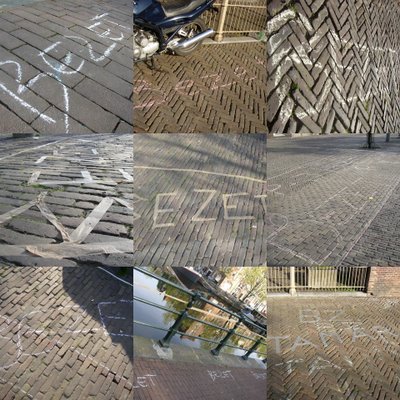
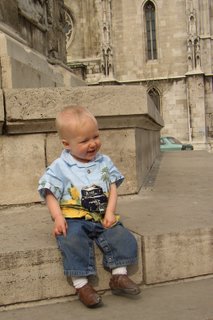

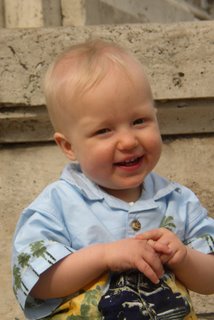

 Herschel Walker was the first person I’d ever heard of with such a name -- a behemoth running back for my favorite football team back when I was an adolescent boy. My brother and I had a poster on the door to our bedroom with Herschel Walker frozen in mid-stride, the purple numerals on his white jersey (#34), looking so strong, so unstoppable, so proud. He had been the hope and joy of the Minnesota Vikings when he was acquired in a blockbuster trade (with a contract worth unprecedented millions)… until he had actually played a couple of seasons in the Minnesota backfield.
Herschel Walker was the first person I’d ever heard of with such a name -- a behemoth running back for my favorite football team back when I was an adolescent boy. My brother and I had a poster on the door to our bedroom with Herschel Walker frozen in mid-stride, the purple numerals on his white jersey (#34), looking so strong, so unstoppable, so proud. He had been the hope and joy of the Minnesota Vikings when he was acquired in a blockbuster trade (with a contract worth unprecedented millions)… until he had actually played a couple of seasons in the Minnesota backfield.

